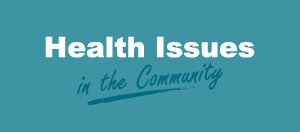Part 2 - Tutor Guidelines
Section 1 - Introduction and Overview
| Contents |
|---|
INTRODUCTION & ACKNOWLEDGEMENTS
This Learning Pack was originally written by Jane Jones and was first produced in 1997 as part of the Lothian Training Initiative – a partnership project involving Lothian Health, the Health Education Board for Scotland (HEBS) and Moray House Institute and funded by HEBS.
Following an extensive evaluation of the Initiative in 2000 HEBS (now NHS Health Scotland) funded the establishment of a Training post at CHEX whose primary responsibility was the on-going development of the Health Issues in the Community training initiative. This was followed by a full review and re-design of the Learning Pack in 2001 and an extensive development programme across Scotland which is still continuing. This development has and continues to be overseen by a Core Group of key stakeholders including core partners, core trainers, course tutors and course participants.
The initiative has been the subject of further review during 2009 and in 2016 which has led to the creation of this 4th edition of the Health Issues in the Community Learning Pack. We would like to thank everyone from the Core Group, the wider tutor group and from CHEX/SCDC who contributed thoughts, ideas or materials to this revised edition.
AIMS OF THE COURSE
To enable participants to develop their understanding of the range of factors that affect their health and the health of their communities and to explore how these factors can be addressed using community development approaches.
IDEAS AND GUIDING PRINCIPLES
The core underpinning theme of Health Issues in the Community is community development. Although this term can be used to describe many different types of activity the particular perspective that is taken here places value on supporting individuals to work collectively; on extending participatory democracy; and on social justice and equity.
The course:
- Draws on a social model of health which views health and illness as having as much to do with economic and social factors as to do with individual behaviour.
- Seeks to promote the value of equity in terms of equal access to health, and to counter discrimination on the grounds of age, race, gender, sexuality or physical ability.
- Supports the right of people to participate in decision-making processes and to take a more active role in the planning and delivery of services.
The guiding principles which have informed the approach include the following:
- That the life experience and knowledge of course members are recognised as the starting point for analysis and discussion.
- That one of the basic processes in learning is the opportunity to reflect on our ideas with other people.
- That it is important for people to develop the skills of critical reflection on the determinants of health and ill-health, and about themselves in relation to society.
- That people should be enabled to participate in the political process as active citizens, and helped to acquire the knowledge or confidence needed for this.
- That Learning can be a creative, fulfilling and enjoyable activity.
LEARNING OBJECTIVES
The objectives of the learning programme are for participants to:
- Gain a broad understanding of the key topic areas – a social model of health, health inequalities, power & participation, and community development approaches to health
- Develop their knowledge, skills and confidence in applying this learning to their own individual lives and the lives of their communities
PART 2 LEARNING OUTCOMES
On completion of the ‘Ideas into Action’ Course (Health Issues in the Community – Part 2) it is intended that participants will be able to:
- Demonstrate a broad understanding of a social model of health and the causes of health inequalities.
- Develop a broad understanding of a community development approach to health and the key concepts and principles that inform this approach
- Demonstrate a broad understanding of community research methods.
- Use a range of community research methods in project work and use a wide range of skills in presenting the outcomes of this work to their peers.
- Work under their own initiative and as part of a team in carrying out project work.
- Reflect on their own learning and practice throughout the programme.

